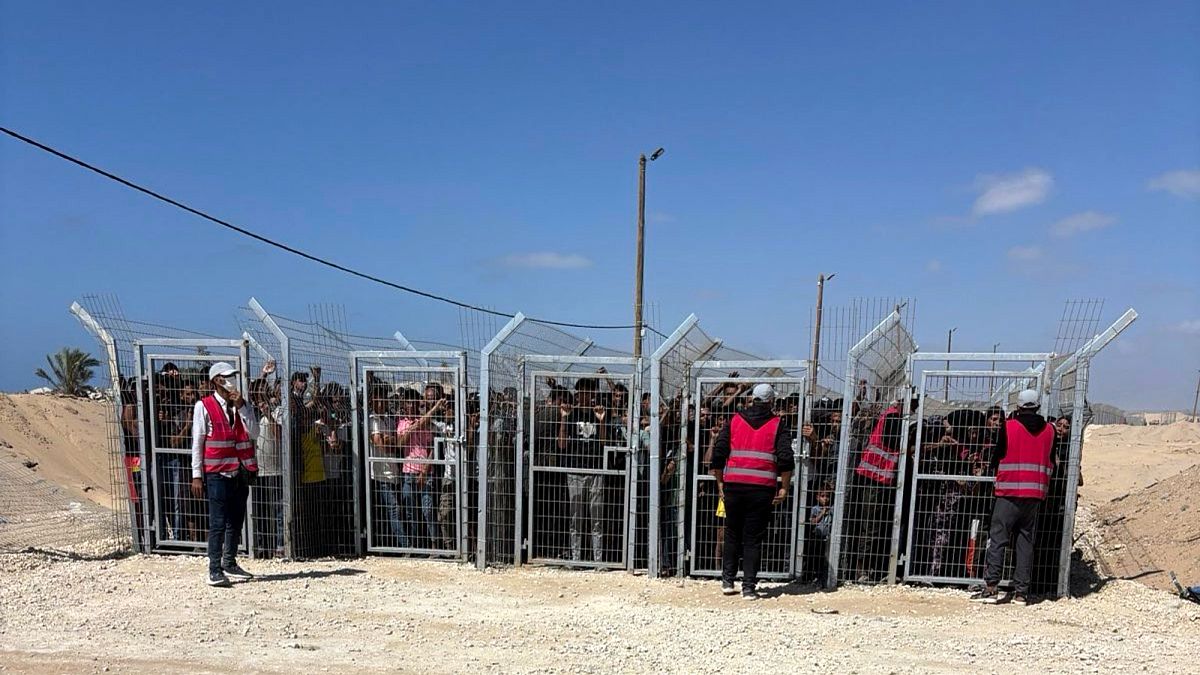

Recent events across multiple regions, from the Middle East to Eastern Europe, highlight ongoing complexities in global politics and humanitarian concerns. These developments underscore the intricate web of geopolitical and human rights issues that continue to challenge peace and stability worldwide.
In Gaza, grave concerns have been voiced regarding the humanitarian crisis unfolding as US contractors claim that colleagues fired live rounds at Palestinians seeking aid. Allegations point to the employment practices of UG Solutions, with contractors speaking anonymously to discuss internal operations. These actions have compounded the already tense situation in Gaza, where the UN has called for international intervention to alleviate the suffering of the local populace.
The United Nations Special Rapporteur on the Occupied Palestinian Territories has voiced serious allegations against various global companies, accusing them of profiting from what is described as a genocidal campaign in Gaza. The rapporteur, Francesca Albanese, has called for sanctions and increased scrutiny of these companies. Such claims add another layer of complexity to the Middle East crisis, invoking international law considerations and prompting calls for greater accountability.
The conflict in Gaza persists amid calls for a ceasefire. Former US President Donald Trump claims that Israel is prepared to agree to a peace deal with Hamas, aimed at a two-month truce to facilitate broader negotiations. However, specific terms and conditions of such an agreement remain ambiguous, highlighting the delicate nature of ceasefire negotiations in conflict zones.
In related military developments, the Israeli military’s use of heavy munitions in Gaza has been scrutinized, following devastating airstrikes on civilian locations, including a beachfront cafe. The bombing, which utilized significant firepower, resulted in numerous casualties and raised questions about potential violations of international humanitarian law.
Meanwhile, in Eastern Europe, tensions continue as Ukrainian resilience is evident amidst Russian aggressions. Notably, a Russian drone strike in Odesa resulted in injuries to civilians, including children. The incident underscores the ongoing threats faced by Ukrainians in their homeland amid an enduring conflict.
Adding to the evolving situation in Russia, the Ukrainian military reportedly eliminated a high-ranking official, Major General Mikhail Gudkov, in a targeted strike within Russia’s Kursk region. This development marks a significant moment in the military engagements between the two nations and suggests tactical shifts in the conflict’s dynamics.
Estonia has also been entangled in regional geopolitical tensions, with an Estonian court reporting that Russian intelligence orchestrated an arson attack on a Ukrainian restaurant. This further illustrates the pervasive reach of intelligence operations in the region, contributing to a climate of insecurity and strife.
Amidst these multifaceted conflicts, the Pentagon noted a strategic shift in its own operations, revealing that US airstrikes, in cooperation with Israel, have delayed Iran’s nuclear program by one to two years. This development follows heightened tensions with Iran and reflects ongoing international efforts to curb nuclear proliferation.
These events reflect a broader narrative of global tension marked by complex interactions between military actions, humanitarian issues, and international diplomatic efforts. Observers around the world remain watchful, hopeful that diplomatic initiatives and peace talks can yield positive changes for affected populations. Such moments demand both sensitivity and steadfast commitment as the world navigates these pressing challenges together.
Source: {link}
